The honor guard performs the ASEAN flag-raising ceremony. (Photo: VNA) |
On the occasion of the 30th anniversary of Vietnam's accession to ASEAN (July 28, 1995 - July 28, 2025), Singaporean Ambassador to Vietnam Jaya Ratnam shared with VNA reporters.
- As a representative of one of the first member countries to found ASEAN in 1967, how does the Ambassador evaluate the contributions of Vietnam - a member that joined later in 1995?
Ambassador Jaya Ratnam: Vietnam’s accession to ASEAN 30 years ago not only marked a turning point in your integration process, but also contributed to strengthening regional solidarity and stability. Together, we have promoted regional cooperation, contributing to an environment of stability, peace , economic development and shared prosperity.
Vietnam has always played a key and principled role in ensuring ASEAN’s centrality. ASEAN is a top priority in Vietnam’s foreign policy and you have proactively promoted ASEAN to play a leading role in resolving pressing regional and global issues. Vietnam has demonstrated its commitment not only through words but also through concrete actions.
Let me give you three examples. First, looking back at the ASEAN Chairmanship Year 2020, Vietnam has clearly demonstrated its leadership role in promoting effective cooperation mechanisms for the region to jointly respond to the COVID-19 pandemic.
Second, like COVID-19, climate change is a global challenge that requires collective efforts. Vietnam and Singapore have made a strong commitment to effective climate action. The two countries are working closely on the development of the ASEAN Power Grid, which aims to promote green energy transition, attract investment, create quality jobs and enhance regional energy security.
Third, Vietnam is steadfast in defending the rules-based international order in the face of global challenges. Vietnam and Singapore are both members of the Comprehensive and Progressive Agreement for Trans- Pacific Partnership (CPTPP) and the Regional Comprehensive Economic Partnership (RCEP), and are the only two ASEAN countries to have a Free Trade Agreement with the European Union (EU).
- 2025 marks an important transition period for ASEAN as it moves towards its Community Vision for the next 20 years, with a focus on strategic cooperation on the pillars of politics -security, economics, culture-society and connectivity. What does the Ambassador think about Vietnam's role in this important period of ASEAN?
Ambassador Jaya Ratnam: Like Vietnam, we do not take ASEAN’s achievements for granted, especially as the next decade is crucial. We are all facing a very difficult and uncertain context, but we have overcome adversity before. As long as we are united, ASEAN can face the challenges with confidence.
When Vietnam joined ASEAN in 1995, Southeast Asia was united for the first time in the region’s history. Regional leaders then understood that facing common challenges together would be more effective than tackling them individually. It was this spirit of solidarity, respect for sovereignty and mutually beneficial cooperation that laid the foundation for regional peace and stability.
We have maintained ASEAN as an open and inclusive organization, affirming that we are friends with all, a region where major countries participate and invest together.
Singaporean Ambassador to Vietnam Jaya Ratnam. (Photo: Viet Duc/VNA) |
Singapore Prime Minister Lawrence Wong once stressed that each ASEAN country may be small in size but together we have considerable strength. With a population of about 700 million people, ASEAN is currently the world's fifth largest economy - after the United States, China, Germany and Japan - and is expected to become the fourth largest economy by 2030.
To achieve the larger goal, the key is for ASEAN to continue to promote integration, investment and remove trade barriers. Currently, ASEAN supply chains have spread across many countries, taking advantage of complementary strengths.
A clear example is our upgrading of the ASEAN Trade in Goods Agreement (ATIGA), aiming at the goal of completely eliminating tariffs. However, we still have a lot of work to do to exploit the full potential. For example, the story of the regional supply chain - such as cotton from the Philippines but spun in Thailand, dyed and sewn in Vietnam, then exported to the world. This is the cooperation model that needs to be replicated.
Singapore and Vietnam share a common vision for a more cohesive and competitive ASEAN market. The two countries are working closely to promote ASEAN as a single market, attract investment and adapt to an increasingly fragmented global economy.
In that context, the early completion of the ASEAN Digital Economy Framework Agreement (DEFA) will play a key role in promoting digital trade, cross-border data flows, and electronic payments.
In addition, ASEAN is also upgrading Free Trade Agreements (FTAs) with important partners such as China, India and South Korea; and then strengthening the ASEAN-EU Strategic Partnership.
Going beyond the region, ASEAN has over the past decade built an open and inclusive regional architecture. Through forums such as the East Asia Summit (EAS) and the ASEAN Outlook on the Indo-Pacific (AOIP), ASEAN maintains its centrality, promotes cooperation, and opposes confrontation or unilateral domination.
When Singapore assumes the ASEAN Chairmanship in 2027 – the year ASEAN celebrates its 60th anniversary – we will work closely with Vietnam and our partners to promote deeper integration and affirm ASEAN’s centrality and prestige.
- To strengthen cooperation as well as realize ASEAN's new development strategies, how can Singapore and Vietnam contribute specifically, Ambassador?
Ambassador Jaya Ratnam: Going forward, the Singapore-Vietnam relationship has the opportunity to grow stronger than ever. In the context of increasing geopolitical tensions and the rules-based multilateral order under pressure, the relationship between the two countries was upgraded to a Comprehensive Strategic Partnership earlier this year. This is Singapore's first Comprehensive Strategic Partnership with an ASEAN country and one of three Comprehensive Strategic Partnerships that Singapore has established globally.
Under the leadership of General Secretary To Lam, Vietnam is entering a “new era” with a focus on sustainable development, green growth and digital transformation. The Comprehensive Strategic Partnership between the two countries clearly identifies ways in which the two countries can leverage, complement and resonate with each other in strategic cooperation areas such as defense, security, transnational crime prevention, and emerging areas such as renewable energy, carbon credits, submarine cable connectivity, food security and the digital economy. These cooperation contents are not only in line with the priorities of the two countries, but also in line with the common vision of ASEAN.
- Thank you very much Ambassador Jaya Ratnam!
According to vietnamplus.vn
Source: https://huengaynay.vn/chinh-tri-xa-hoi/viec-viet-nam-gia-nhap-asean-gop-phan-tang-cuong-doan-ket-va-on-dinh-khu-vuc-156146.html


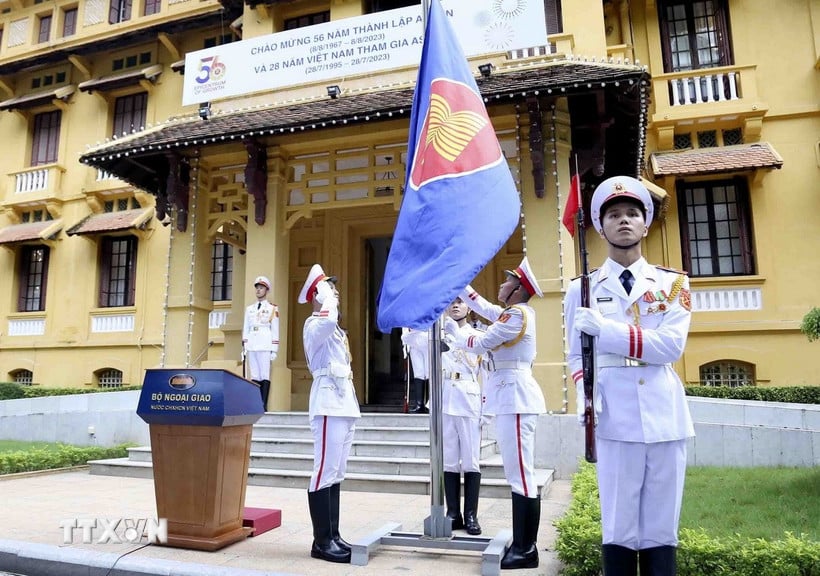
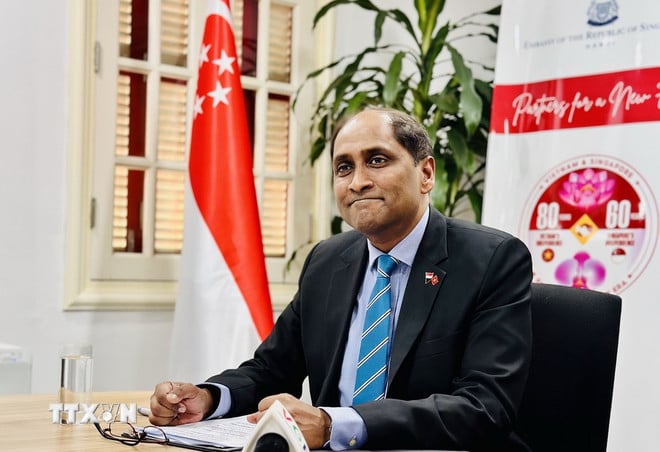




![[Photo] Da Nang: Hundreds of people join hands to clean up a vital tourist route after storm No. 13](https://vphoto.vietnam.vn/thumb/1200x675/vietnam/resource/IMAGE/2025/11/07/1762491638903_image-3-1353-jpg.webp)

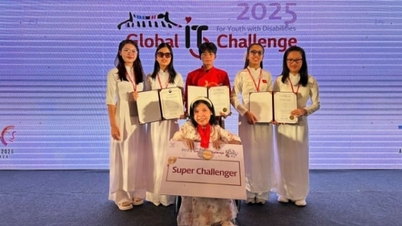

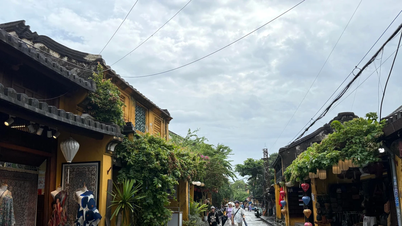

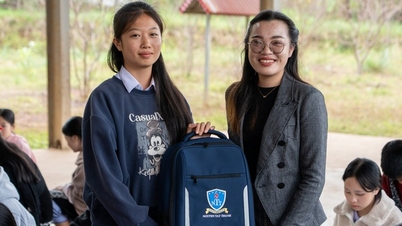

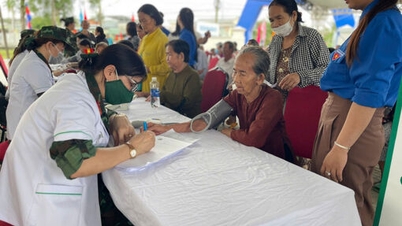

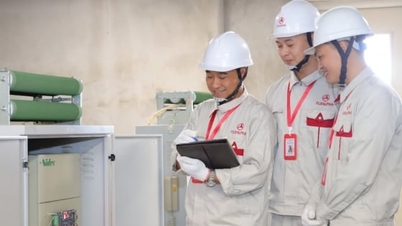
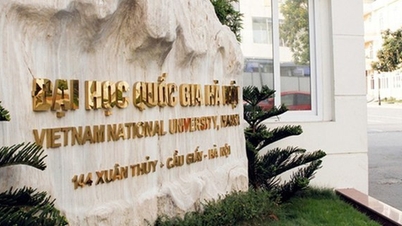






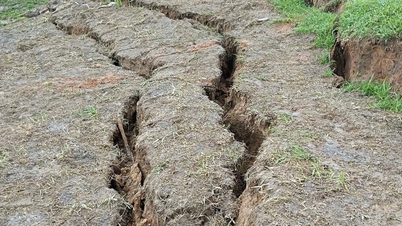



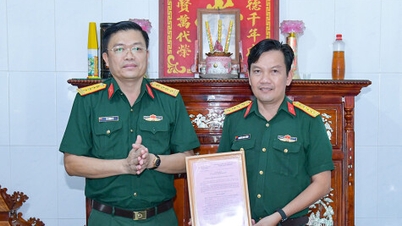







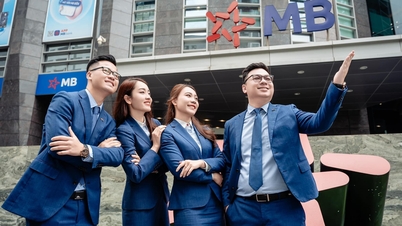
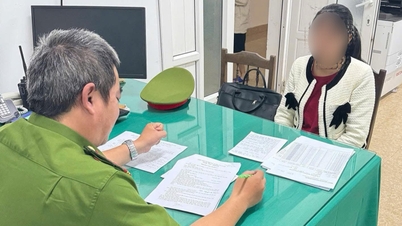
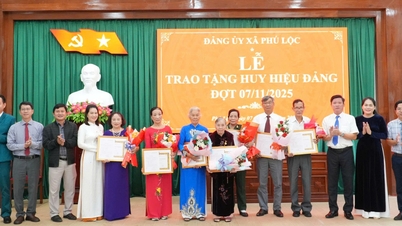
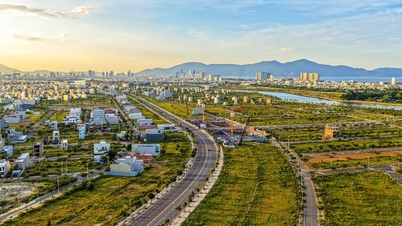





















































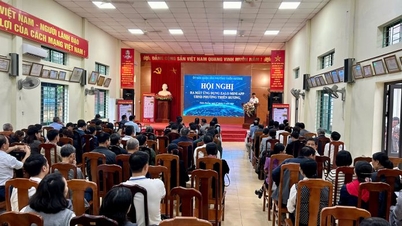
















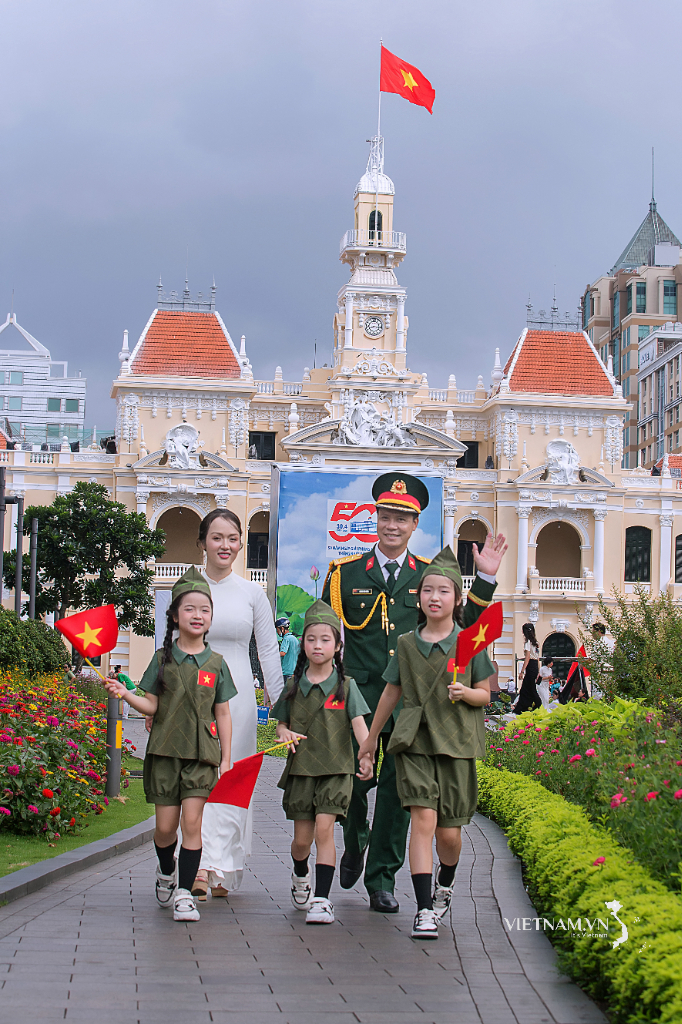



Comment (0)